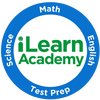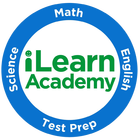|
Each year, about 30 percent of ACT test-takers earn scores at or above the College Readiness Benchmark. That means that about 70 percent do not. Some students score below the benchmark because they are not ready for college-level academics. Others, however, may simply be unfamiliar with the test material. This happens for a few reasons. Sometimes, tricky math problems or nuanced writing mechanics are above a student's ability. But usually, students have simply forgotten material they learned long ago or failed to practice fundamental reading and problem-solving skills. Luckily, that issue is easily fixed. By building and maintaining grammar, reading, and problem-solving skills over time, your student can take the stress out of standardized testing. Here's what your students should be doing now to help them earn their best scores: 1. Read for Fun Students who read outside of school are miles ahead of their peers in vocabulary, grammar and reading comprehension. In fact, a student's attitude toward reading is a better predictor of his or her academic achievement than parent income or education. Student who read because they want to consistently outpace students who only read when extrinsically motivated by grades, rewards, or punishments. How can parents encourage children to become self-motivated readers? There are two ways: limiting screen time and connecting kids with reading materials that suits their interests. Not every student will enjoy "academic" reading like historical nonfiction, essays or canonical literature -- and that's okay! All reading helps build essential language skills. So put a password on that laptop and join your student on a trip to the bookstore or library. 2. Review Grammar While the ACT, SAT, and PSAT test extensively on grammar, most English teachers stop reviewing these concepts after middle school. By junior high, many students have forgotten foundational grammar concepts like parts of speech, comma rules, and simple subjects and predicates. The solution to this is to review incrementally. Cramming for the ACT or SAT is impossible, because of the breadth of material the test covers. Preparing for these tests requires either a few months of intensive practice or a few years of regular review. Help your child build time into her homework schedule for short review sessions. With due dates looming, it can be tough to make time for relearning old concepts, but it's essential for success on college entrance exams and other important standardized tests. The best way to review is to keep detailed class notes. There are also excellent online resources for reviewing grammar concepts. Every iLearn Academy students gets a free account on IXL.com, which contains a huge database of grammar, vocabulary, reading and math exercises. 3. Don't Forget About Algebra
Algebra is the foundation of mathematical problem-solving in high school and beyond, so the ACT Math section tests heavily on algebraic concepts. While students take Geometry, however, their focus shifts to non-algebraic concepts like proofs and trigonometry, and it's easy to forget Algebra skills from years past. If your student takes Geometry right before taking the ACT, make sure he or she thoroughly reviews Algebra concepts like systems of equations, quadratic functions, graphing linear inequalities, solving linear equations, and setting up expressions. (Make sure he uses ACT-style word problems and not just numerical ones!) 4. Focus on Nonfiction Often, a test's biggest reading comprehension challenges come in the form of nonfiction passages. The ACT, for example, contains science, humanities and social studies passages. If students are unfamiliar with the common structures and devices of nonfiction passages, their scores can suffer. Talk with your student's science, history and English teachers about their use of nonfiction passages. Will students be exposed to scholarly articles and journalism in science, history and the humanities -- or will most of their reading come from a textbook? If that's the case, connect your students with engaging nonfiction articles from sources like Time Magazine, National Geographic and The Economist. How to Prepare All in all: The best way to prepare for standardized tests is to set aside some time each week or each month for cumulative review. Use class notes and resources like IXL.com to check in on grammar, Algebra, and informational reading skills. Help your student develop a love of reading by connecting her with books and magazines she enjoys and limiting screen time. We know it can be tough to monitor your child's homework routine and hold him accountable for standardized test preparation. iLearn Academy's Test Prep Gym lets students prepare for standardized tests on their own schedules with a multitude of real practice tests and skill-building exercises. Just come by our center, grab a test booklet and start practicing. There are always tutors available to check work, correct missed answers and review tricky concepts. Additionally, iLearn Academy half-day summer programs include two free hours of standardized test prep each week for PSAT 8-9, PSAT/NMSQT, ACT or SAT when you enroll before May 18. To sign up for summer test prep, classes, or Test Prep Gym, read about our summer programs or download our enrollment form.
0 Comments
We love boosting grades. However, we know there's more to success than the letters on a report card. Often, a student's attitude toward schoolwork matters more than his or her skills. Students who develop personal responsibility, motivation and teamwork are better prepared to achieve. That's why we're excited to announce our 2019 Summer Program theme: 7 Habits of Highly Effective Students. This reading and writing curriculum - based on Sean Covey's bestselling book 7 Habits of Highly Effective Teens - will help students identify the behaviors that support long-term success. Through discussion and reflection, students will consider how their personal values, goals and strengths can inspire them in and out of the classroom. Here's a closer look at the habits we will focus on each week. By the end of summer, we hope our students feel empowered both academically and personally! Week 1: Be Proactive Students begin by considering the importance of habits. Can our daily habits really influence our future selves? They then define their paradigms and principles. How do they view the world? What matters most to them? Do they take responsibility for their wins and their losses? Lastly, they will discuss the importance of keeping promises -- to others and to themselves. Week 2: Begin with the End in Mind Long-term goals help students discover the purpose behind their schoolwork and activities. Students will craft a personal mission statement and learn how to set weekly, monthly, and yearly goals. They will then examine how they divide their time -- are they choosing activities that put them closer to their mission? Week 3: Put First Things First Lengthy to-do lists make it tough to decide what to tackle first. Students will learn to separate their to-dos into four categories: urgent and important, not urgent but important, urgent and unimportant, and neither urgent nor important. By organizing their tasks, students can cut down on procrastination and minimize time spent on activities that aren't truly important to them. Week 4: Think Win/Win
From dance class to college admissions, students' lives feel more competitive than ever. This habit debunks the idea that life is a "zero sum game" in which a win for one person means a loss for another. Students will learn the many benefits of supporting other people's success. Similarly, they will learn how to speak up and advocate for themselves when needed. Week 5: Seek First to Understand, Then Be Understood This habit can enhance students' relationships with friends, family, teachers and coaches. In times of conflict, our first instinct is usually to explain our own perspectives. By first trying to understand how others are feeling, students can solve interpersonal problems from the inside out. Week 6: Synergize Our differences are a source of strength! In this unit, students will learn to harness the diversity around them and draw from different perspectives. How can a fresh pair of eyes take your project, idea or goal to the next level? Week 7: Sharpen the Saw If we don't take care of our minds, bodies and spirits, our goals start to drain us instead of inspire us. Students will identify which activities drain energy and which renew it. Then, they will create their own definitions of a balanced life. Curriculum Throughout the summer, students will work through the 7 Habits workbook, which gives space to journal and plan as we examine each habit. Reading classes will focus on historical figures who paved their own roads to success. Grades K-6 will practice comprehension strategies with historical fiction and nonfiction articles and short stories; grades 7-12 will read longer biographies. Students will also strengthen their informative and creative writing skills. Elementary students will focus on personal narratives and informative essays, middle school students will focus on persuasive essays and story structure, and high school students will focus on literary analysis and research papers. Join Us This Summer! At iLearn Academy, we want to help our students develop all the tools for success. Sometimes, that means building strong math skills. Other times, it means setting personal goals that motivate students for years to come. Join us this summer for a meaningful, enriching curriculum and top-notch tutoring that helps students start the school year strong. Call 847-834-0791 for more information about summer programs and classes. |
Categories |
We make a personal commitment to ensure each student is well-prepared for the academic school year.
Dedicated to helping your student succeed.
©
iLearn Academy 2019





 RSS Feed
RSS Feed
